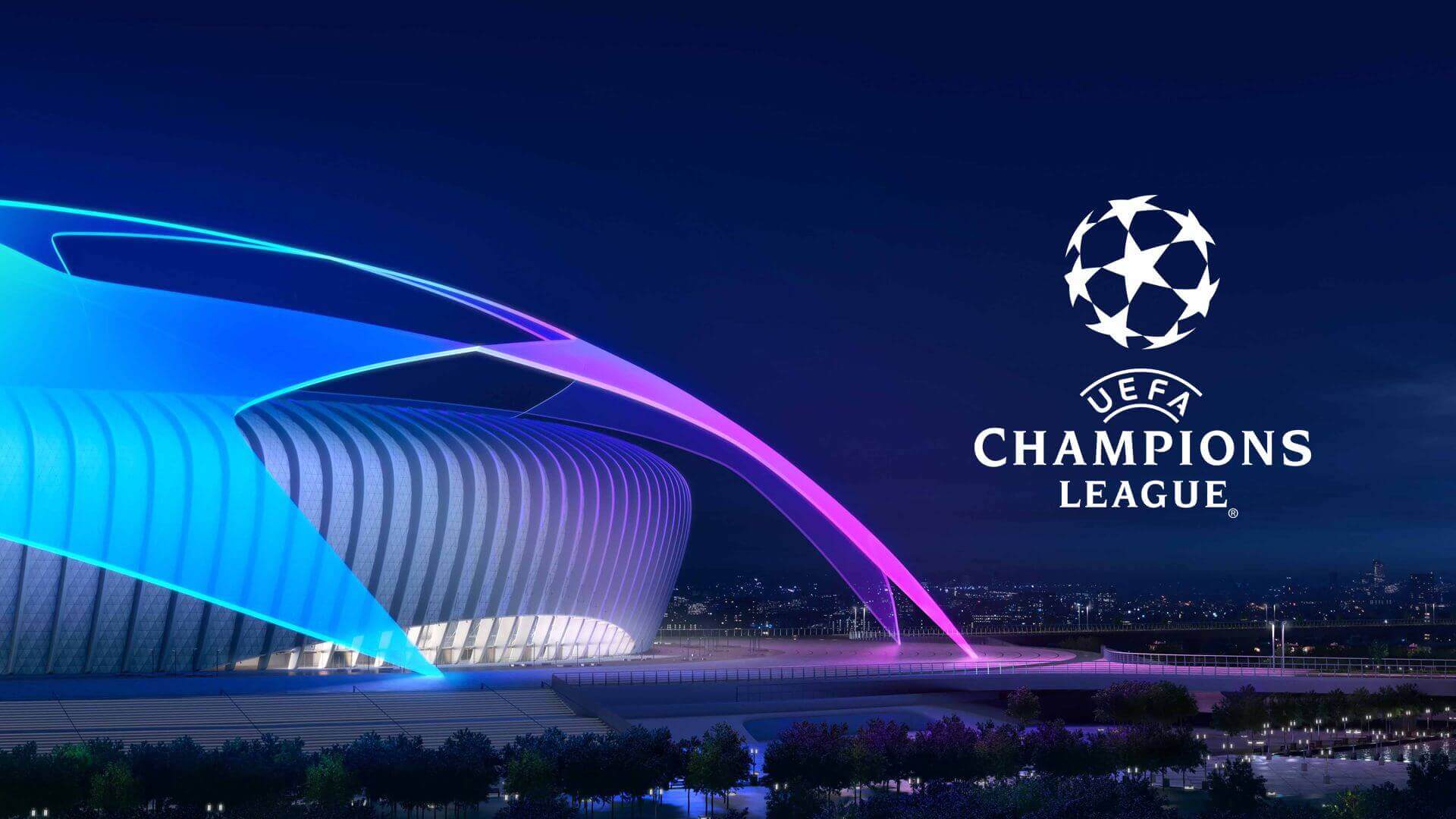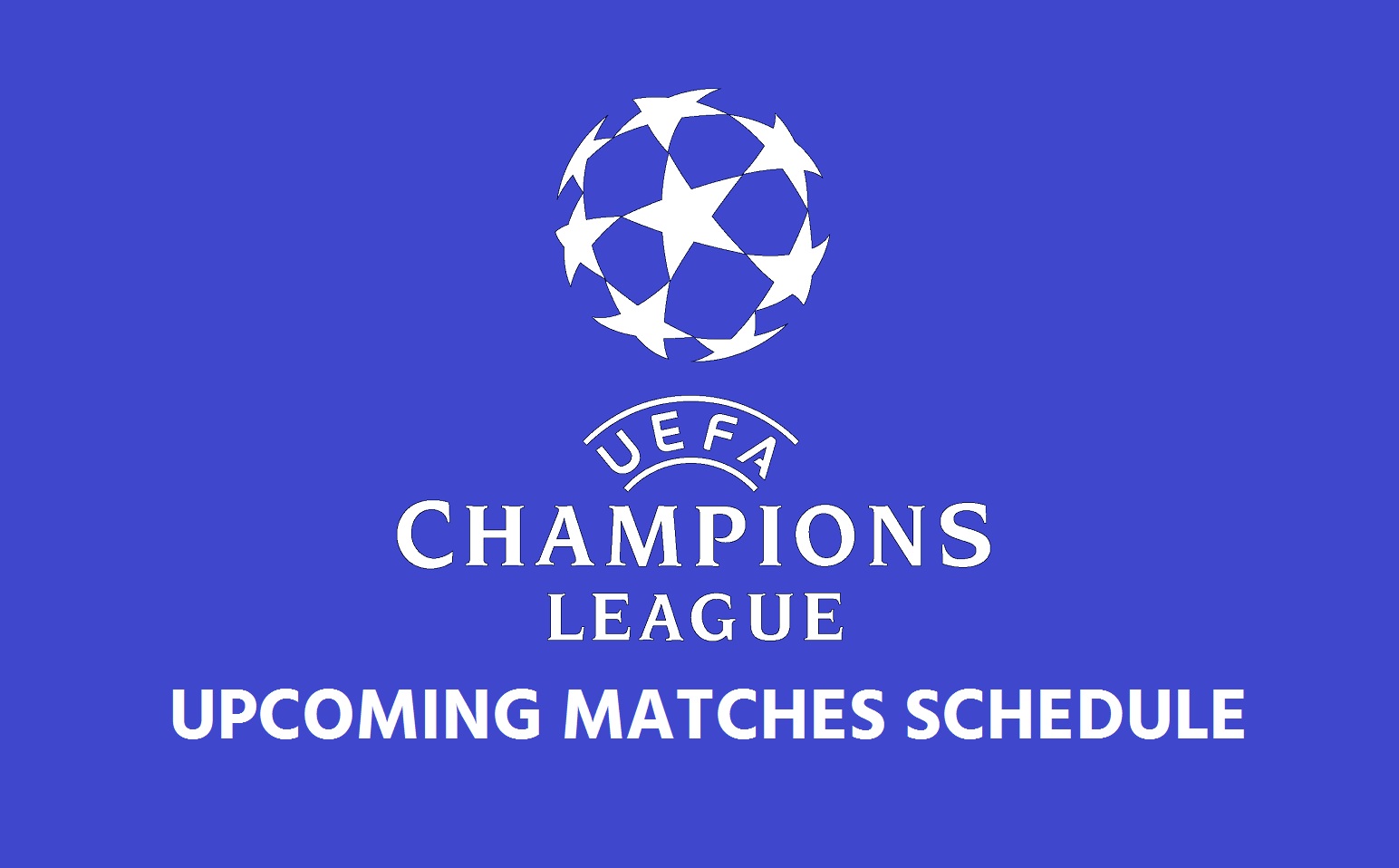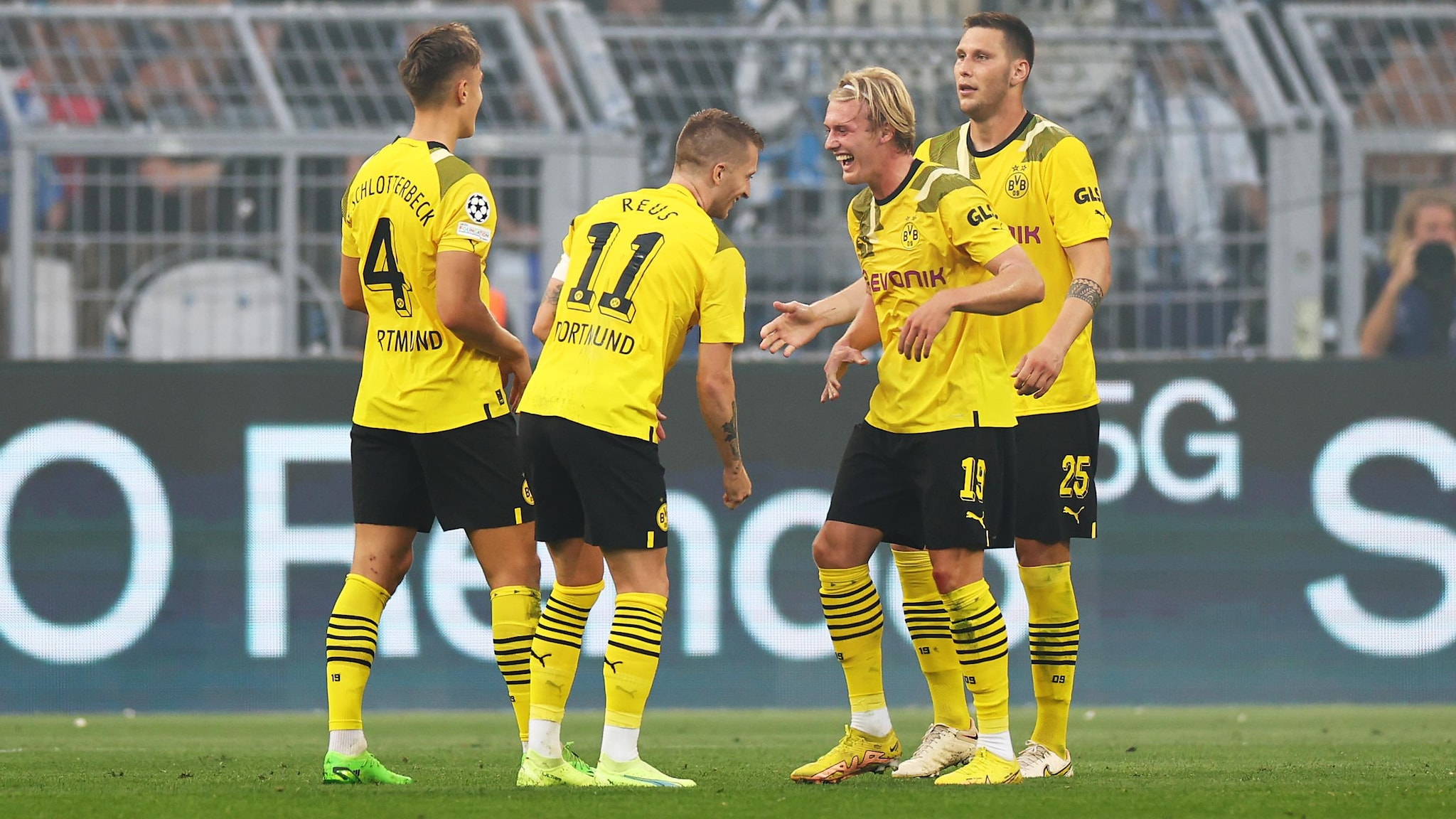Unveiling The Excitement Of UEFA Champions League Matches
There’s something magical about the UEFA Champions League matches that gets fans buzzing from all corners of the globe. Whether you’re watching it live in a stadium packed with passionate supporters or glued to your screen at home, the energy is undeniable. The UEFA Champions League is more than just a soccer tournament—it’s an experience, a spectacle, and a celebration of the world’s most beautiful game. So, buckle up, because we’re diving deep into what makes these matches so extraordinary.
You’ve probably heard people talk about how the Champions League is different from regular league games. And trust me, they’re not exaggerating. It’s like stepping into a different dimension where every pass, every goal, and every save carries so much more weight. From the iconic anthem that plays before the match to the nail-biting finishes, it’s a rollercoaster of emotions that keeps you on edge.
But what exactly is it about the UEFA Champions League that makes it so special? Is it the quality of football? The drama-filled storylines? Or maybe it’s the sheer prestige associated with lifting that gleaming trophy? Let’s explore all of this and more as we uncover the excitement behind one of the most prestigious tournaments in the world.
Read also:Chinese New Year 1985 Animal A Year Of The Ox And What It Means
Table of Contents
- The Rich History of UEFA Champions League
- Understanding the Format of the Tournament
- Iconic Moments That Shaped the Competition
- The Superstars Who Made Their Mark
- What Makes the Fan Experience Unique?
- The Prestige and Glory of Winning the Champions League
- Economic Impact of the Champions League
- Where Is the Champions League Heading in the Future?
- Tips for New Fans to Enjoy the Matches
- Wrapping It All Up
The Rich History of UEFA Champions League
Before we dive into the excitement, let’s rewind a bit and talk about how the UEFA Champions League came to be. Back in the day, it wasn’t even called the Champions League—it started as the European Cup in 1955. The idea was simple: bring together the best clubs from across Europe to compete for glory. And boy, did it take off!
Over the years, the competition evolved, and in 1992, it officially became the UEFA Champions League. This change wasn’t just a name tweak—it brought about a whole new format that made the tournament even more thrilling. Now, instead of just knockout rounds, there’s a group stage where teams battle it out to secure their place in the knockout phase. And let’s be real, the group stage is where all the drama kicks off.
Fun fact: Did you know that Real Madrid were the first winners of the European Cup back in 1956? Yeah, they’ve been dominating this tournament for decades, and their legacy continues to this day. But the beauty of the Champions League is that it’s not just about the big names. Underdogs have their moments too, and we’ll get into some of those epic stories later.
How the Champions League Has Changed Over Time
Back in the early days, the tournament was pretty straightforward. Teams would play each other in knockout rounds until one emerged victorious. But as the competition grew in popularity, so did the need for a more structured format. Enter the group stage, which added a whole new layer of complexity and excitement.
Another big change came with the introduction of third-place playoffs and the expansion of the tournament to include more teams. This meant that even clubs from smaller leagues had a chance to shine on the big stage. And let’s not forget the financial implications. The prize money and broadcasting rights have skyrocketed, making the Champions League one of the most lucrative tournaments in sports.
Read also:Mastering Remote Iot Monitoring With Ssh
Understanding the Format of the Tournament
Alright, let’s break down how the UEFA Champions League actually works. It’s not as complicated as it might seem at first glance. The tournament is divided into two main phases: the group stage and the knockout stage.
The Group Stage: Where It All Begins
In the group stage, 32 teams are split into eight groups of four. Each team plays every other team in their group twice—home and away. The top two teams from each group advance to the knockout rounds. Simple, right? Well, not exactly. This is where the drama starts to unfold. Every game matters, and a single slip-up can cost you a spot in the next round.
And then there’s the whole seeding thing. Teams are divided into pots based on their rankings, ensuring that the strongest teams don’t end up in the same group. But even with this system, you still get those crazy groups where every match feels like a final. These are often referred to as “Groups of Death,” and they’re the stuff of legend.
The Knockout Stage: When the Pressure Is On
Once the group stage is over, it’s time for the real action to begin. The knockout stage is a best-of-two-legs affair, meaning teams play each other home and away. The team with the most goals over the two matches advances. If it’s a tie, extra time and penalties come into play. It’s intense, dramatic, and oh-so-exciting.
And of course, the final. Played at a neutral venue, it’s the culmination of months of hard-fought battles. The atmosphere is electric, the stakes are sky-high, and the trophy is the ultimate prize. It’s no wonder fans travel from all over the world just to witness this momentous occasion.
Iconic Moments That Shaped the Competition
No discussion about the UEFA Champions League would be complete without talking about the iconic moments that have defined the tournament. From last-minute winners to jaw-dropping comebacks, there’s no shortage of drama in this competition.
The Miracle of Istanbul
Let’s start with one of the most legendary comebacks in sports history: Liverpool vs. AC Milan in 2005. Milan were dominating the first half, going into the break with a 3-0 lead. But then something magical happened. Liverpool came out fighting in the second half, scoring three goals in just six minutes to level the score. The game went to extra time and eventually penalties, with Liverpool emerging victorious. It’s a story that still gives fans goosebumps to this day.
That Night in Lisbon
Fast forward to 2014, and we have another unforgettable final: Real Madrid vs. Atlético Madrid. This one was a nail-biter, with Atlético leading for most of the match. But in the dying moments, Sergio Ramos scored a header to force extra time. Real Madrid went on to win 4-1, cementing their status as the kings of Europe.
The Superstars Who Made Their Mark
Of course, no Champions League story would be complete without mentioning the players who’ve made it their stage. These are the guys who’ve scored the goals, delivered the assists, and created the moments that fans talk about for years.
Cristiano Ronaldo: The King of the Champions League
When it comes to the Champions League, one name stands head and shoulders above the rest: Cristiano Ronaldo. The man has scored more goals than anyone else in the competition’s history, and his list of accolades is nothing short of extraordinary. From his days at Manchester United to his dominance with Real Madrid, Ronaldo has been a force to be reckoned with.
Lionel Messi: The Maestro
And then there’s Lionel Messi, the other half of the GOAT debate. While he may not have as many titles as Ronaldo, Messi’s brilliance on the pitch is undeniable. His ability to create and score goals seemingly out of nowhere has made him a legend in his own right. And let’s not forget those iconic celebrations—he’s a true entertainer.
What Makes the Fan Experience Unique?
Now, let’s talk about the fans. Because without them, the Champions League wouldn’t be the spectacle it is today. From the vibrant colors of the away supporters to the deafening chants in the stands, the atmosphere is electric.
Stadium Vibes
There’s nothing quite like being in the stadium for a Champions League match. The anticipation builds as you walk through the gates, and the energy is palpable. And when that anthem starts playing, it’s like a signal that something special is about to happen. Whether you’re at the Bernabéu, Camp Nou, or Anfield, every stadium has its own unique vibe that adds to the experience.
Watching Parties
Of course, not everyone can make it to the stadium, and that’s where watching parties come in. Fans gather in bars, homes, and public spaces to cheer on their teams. It’s a chance to bond with fellow supporters and share in the excitement. And let’s be honest, the snacks and drinks don’t hurt either.
The Prestige and Glory of Winning the Champions League
Winning the UEFA Champions League isn’t just about lifting the trophy—it’s about joining an elite club of the world’s best teams. The prestige associated with this tournament is unmatched, and it’s a dream for every player and coach to win it.
Impact on Players’ Careers
For players, winning the Champions League can be a career-defining moment. It’s a chance to prove themselves on the biggest stage and earn recognition from fans and peers alike. And let’s not forget the financial rewards—winning the tournament can lead to bigger contracts and endorsements.
Club Legacy
For clubs, it’s about building a legacy. Winning the Champions League cements a team’s place in history and gives them bragging rights for years to come. It’s also a huge boost for recruitment, as top players are more likely to join a club with Champions League credentials.
Economic Impact of the Champions League
Let’s not forget the financial side of things. The UEFA Champions League is a massive business, generating billions of euros in revenue each year. From broadcasting rights to sponsorship deals, the money flows in from all directions.
Prize Money
And then there’s the prize money. Teams earn millions just for participating in the tournament, with even more up for grabs for those who advance deep into the competition. Winning the tournament can be a game-changer for clubs, allowing them to invest in new talent and infrastructure.
Global Reach
The Champions League has a global reach that few other sports can match. It’s broadcast in over 200 countries, reaching billions of viewers. This massive audience makes it an attractive proposition for advertisers and sponsors, further boosting its economic impact.
Where Is the Champions League Heading in the Future?
As with any major competition, the Champions League is constantly evolving. With new technologies, changing fan preferences, and shifting market dynamics, the future looks exciting.
Expansion Plans
There’s talk of expanding the tournament to include more teams and matches, which could make it even more competitive. But with that comes concerns about player workload and the quality of the games. It’s a delicate balance that UEFA will need to navigate carefully.
Technology Integration
Technology is also playing a bigger role in the Champions League. From VAR to advanced analytics, clubs are using cutting-edge tools to gain an edge. And let’s not forget the fan experience—virtual reality and augmented reality could soon become a regular part of how fans engage with the tournament.
Tips for New Fans to Enjoy the Matches
If you’re new to the UEFA Champions League, don’t worry—there’s plenty to love. Here are a few tips to help you get the most out of the experience:
- Do your research: Learn about the teams, players, and history of the competition. It’ll make the matches more enjoyable.
- Watch with friends: Nothing beats the camaraderie of watching a game with fellow fans. Whether in person or virtually, it adds to the fun.
- Stay updated: Follow the latest news and stats to stay in the loop. Social media is a great resource for this.
- Embrace the drama: The Champions League is all about the unpredictability. Enjoy the twists and turns as they happen.
Wrapping It All Up
So, there you have it—a deep dive into the excitement of UEFA Champions League matches. From its rich history to the iconic moments that have defined it, this tournament is a celebration of football in its purest form. Whether you’re a lifelong fan or just discovering the magic, there’s


